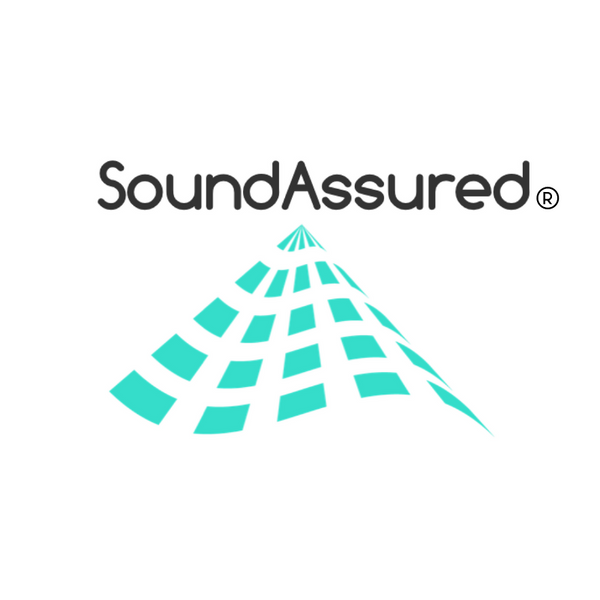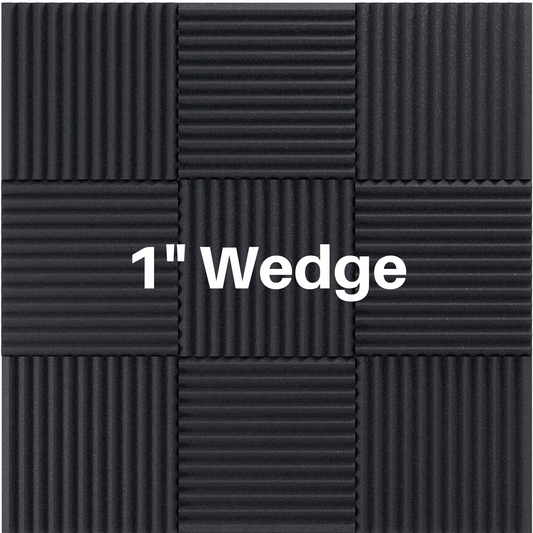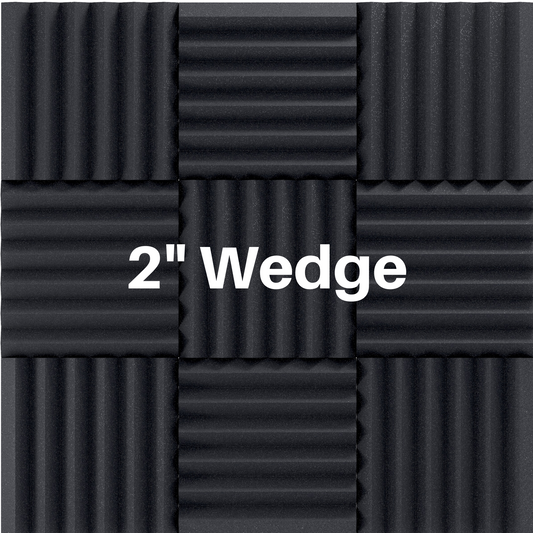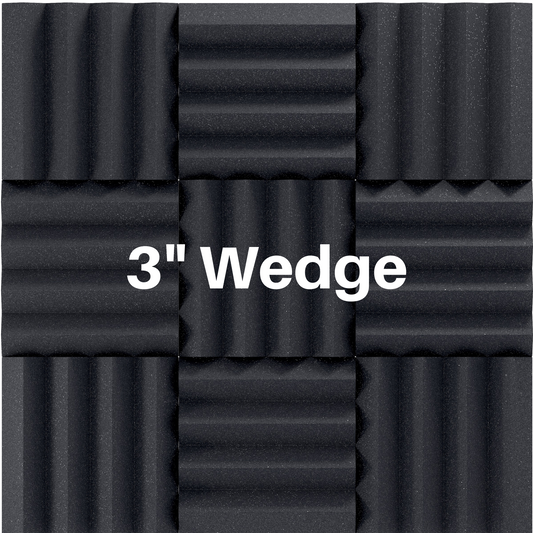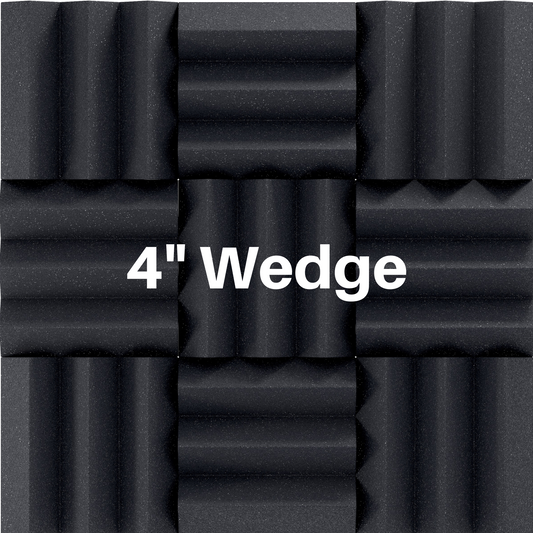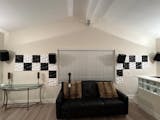Are Recording Studios Profitable?
Share
Can you still get rich in the recording studio business?
Overview Of The Recording Studio Industry
The recording studio industry, an integral component of music production, is undergoing transformative changes influenced by technology, consumer behavior shifts, and genre evolution.
A recording studio business is a vital hub for music and audio production, providing artists with the tools to bring creative visions to life.
Current trends include the rise of home studios, remote collaboration tools, and the diversification of services to meet the demands of a changing market.
Subscription models, streaming integration, and innovative technologies shape the industry's landscape. From independent studios offering personalized services to major studios with cutting-edge facilities, the key to success lies in adapting to evolving trends and embracing technological advancements.
Revenue Streams For Recording Studios
Hourly or Session Rates
Charging clients on an hourly or per-session basis for studio time is a traditional and straightforward revenue model. Rates may vary based on the studio's facilities, equipment, and location.
Project-Based Fees
Offering project-based fees for the entire production process, including recording, mixing, and mastering, provides clients with a comprehensive package and can be a predictable source of income for the studio.
Equipment Rental
Some studios generate revenue by renting out their high-end equipment, instruments, or specialized gear to musicians, producers, or other studios without such resources.
Additional Services
Diversifying services beyond basic recording, such as offering mixing, mastering, production, and post-production services, allows studios to cater to a broader clientele and increase revenue streams.
Subscription Models
Implementing subscription-based models, where clients pay a recurring fee for access to the studio's facilities and services on a regular basis, can provide a steady income and encourage long-term relationships.
Remote Mixing and Mastering
Offering remote mixing and mastering services allows studios to work with clients worldwide, expanding their reach and potentially increasing revenue from a global clientele.
Collaborative Spaces and Coworking
Some studios operate as collaborative spaces, renting out studio time or workspace to multiple creatives, fostering a community and generating revenue from various sources.
Live Session Recordings
Recording live sessions, performances, or events can be a lucrative revenue stream, especially for studios with acoustically optimized spaces and professional recording equipment.
Educational Workshops and Classes
Hosting workshops, training sessions, or educational classes related to audio engineering, music production, or studio techniques can provide an additional revenue stream while contributing to community engagement.
Partnerships and Sponsorships:
Forming partnerships with equipment manufacturers, software developers, or other industry players can lead to sponsorship opportunities, bringing in additional revenue or discounted resources for the studio.
Online Content Creation
Studios can create and sell online content, such as sample packs, presets, or tutorial videos, catering to a global audience and generating revenue beyond traditional studio services.
By diversifying revenue streams, recording studios can adapt to changes in the industry and market demands while creating a more sustainable and profitable business model.
How Much Does A Recording Studio Cost To Build?
The initial upfront cost of building the recording studio need to be factored in. The easiest way to guess the budget for your studio is to find the total square foot of your space, and then use a multiplier.
How much does a recording studio cost per square foot?
In already built structure
- $75 to $150 per sq ft
In new structure
- $150 to $350 per sq ft
CLICK HERE to get a free excel sheet with a studio cost calculator. You will find the cost calculator on the 2nd tab of the excel sheet.
There are many factors that can make your budget go up or down. For instance, if you have experience with construction and do not need to hire a contractor and he will save a ton on hourly labor cost.
On the other hand, if you need to hire everything out and want top of the line equipment then you will need to use the upper end of the multiplier.
The initial cost of building the studio can be depreciated over multiple years. For commercial production facilities in the United States, the Internal Revenue Service (IRS) typically allows the depreciation of the building over a period of 39 years. That means you can write off the expense of building your studio for almost 40 years! Make sure to talk to your accountant to figure out the best plan for you, because I am not an accountant :)
If you have a solid plan, and a good team you can explore getting a bank loan or SBA loan to fund your studio. The goal would be to score a loan to cover the costs of building the studio, and using future cash flows to pay for the loan.
Operating Expenses For Recording Studios
Beyond the initial costs of building your studio, you will have monthly and yearly operating expenses.
Government Fees
Of coarse there are business licenses and fees. You know the government has to get their money. These fees will vary from place to place. Here is a list of things you may encounter.
Business License
Most jurisdictions require a general business license, and fees can vary based on location and the size of the business.
Health and Safety Permits
Compliance with health and safety regulations may necessitate permits, particularly if the studio has employees or hosts clients on-site.
Occupancy Permit
Studios operating in commercial spaces may need an occupancy permit, and fees can be based on the square footage of the facility.
Zoning Permits
Zoning regulations may require specific permits for certain types of businesses operating in particular zones. Zoning fees can vary.
Professional Licenses
If the studio employs licensed professionals, such as engineers or producers, individual professional licenses may be required
Sales Tax License
If the studio sells merchandise or services, it may need a sales tax license, and fees could be associated with this.
Annual Renewal Fees
Some licenses require annual renewals, and fees associated with renewals should be budgeted for.
Rent or Lease Costs
Renting or leasing a dedicated space for the studio is a significant ongoing expense. If you were able to get a business loan or mortgage to build a studio, you will be making monthly payments against the loan rather than rent payments. \
You definitely want to own the building if you can. If you ever want to sell your studio business, it will be worth a LOT more if there is real estate included and no landlord for the new business owner to worry about.
Utilities
Monthly costs for electricity, water, heating, and cooling contribute to the operational overhead.
Equipment Maintenance and Upgrades
Regular maintenance of recording equipment and instruments is crucial for optimal performance. Upgrades to software and hardware are also common expenses. The cool thing about having nice vintage equipment is it sound awesome, the bad part is it costs an arm and a leg to fix when something goes wrong.
Insurance
Insurance coverage is necessary to protect the studio's assets, including equipment, facilities, and liability coverage. You definitely want to shop around for the best business insurance rates. Obviously insurance sucks and you will probably never use it, but you better have it!
Staff Wages
Compensation for studio engineers, producers, administrative staff, and other personnel involved in day-to-day operations.
TIP: If you want to offer upsells like music promotion or content creation you can use Fiverr or Upwork to find a freelancer that does great work already. Parter with the freelancer to do music promotion or edit pics and videos from the recording session to create content for your clients. By using a freelancer you do not have to commit to a salaried position, and can make extra cash for offering complimentary services.
Marketing and Advertising
Expenses related to promoting the studio's services, including online and offline advertising, website maintenance, and promotional materials.
Software Licenses
Costs associated with acquiring and renewing licenses for recording software, digital audio workstations (DAWs), and other essential applications. The plugin expenses are going to add up for sure :)
Royalties and Licensing Fees
If the studio works with copyrighted material, expenses may include royalties and licensing fees paid to artists, composers, or copyright holders.
Security
Implementing security measures, such as surveillance systems and access control, to protect the studio's equipment and assets.
Networking and Internet Services
Costs for internet connectivity, networking infrastructure, and online services essential for collaboration, file sharing, and online marketing.
Legal and Accounting Fees
Costs associated with legal services for contracts, licensing agreements, and any legal matters. Accounting fees cover financial record-keeping and tax-related services.
Training and Professional Development
Investing in ongoing training and professional development for staff to stay updated on industry trends and technologies.
Travel and Transportation
If the studio engages in on-location recording or client visits, expenses related to travel, transportation, and accommodation may be incurred.
Miscellaneous Supplies
Everyday supplies such as cables, connectors, headphones, and other consumables essential for daily studio operations.
Financial Projections For A Studio
Now that we understand the upfront costs, ongoing costs and potential revenue streams let's see how much money we can potentially make from a recording studio.
To make this easy on you we created a fee financial projection sheets for you to use. Your location and specific situation can change these numbers drastically.
For example, if you already have a big name and are opening a new studio, you can charge a premium and you will have clients lining up when you open the door. On the other hand, if you are new to the game and do not have a ton of equipment you may have to build your clients up over the years.
Make sure you use realistic numbers when making these projections. The last thing you want to do it dig yourself a financial hole that you cannot escape. Be realistic with yourself and what you can and cannot do.
CLICK HERE to get your free recording studio financial projections excel sheet!
The numbers in this sheet are general estimates, and actual amounts can vary based on the specific circumstances of the recording studio. It's advisable for studio owners to create a detailed budget based on their unique business situation.
Note that the studio does not start making money until months into running this business. This is common for most businesses. You rarely see a business turn on the lights and start raking in the dough right away. It takes some time to build regular clients and work out the kinks in your business.
Marketing and Branding For A Recording Studio
Before you start anything you want to perform a market analysis. This involves doing research on other local studios and industry trends. Here is a list of things that you can do to perform a market analysis for your recording studio.
Study Your Target Market
Identify the demographics and location of your target audience. Use resources like local census data, online surveys, local chamber of commerce, local schools and universities, google analytics, google trends, and professional organizations like NAMM.
These resources will help you figure out who you need to tailor your studio to. Your goal will be to create an ideal customer avatar.
Get Up To Date On Industry Trends
Monitor trends, technological advancements, and emerging genres in the recording studio industry. Find a magazine, blog, or Youtube channel that you like to keep you up on recording studio industry trends.
Do A Competitor Analysis
Analyze local and target market competitors, assessing strengths, weaknesses, and pricing strategies. Reach out to local studios and get their pricing. Also, make sure you pay attention to how they interact with you (a potential client) and use some of their tactics that you feel worked on you.
Do A SWOT Analysis
Conduct a brief SWOT analysis to understand internal capabilities and external factors. A SWOT analysis is a strategic planning tool that evaluates the Strengths, Weaknesses, Opportunities, and Threats of a business or project. It involves identifying internal factors that contribute to the organization's success or challenges, as well as external factors that may impact its performance.
Gather Customer Insights
Gather customer feedback through surveys or interviews to tailor services to their needs. Look up your competition on Google maps and yelp. Go through all of their reviews and make a list of things people like about them, and a list of things people do not like. This will help you figure out things you need to do and things you don't want to do in your studio.
Construct A Marketing Plan
Develop a concise marketing strategy highlighting key selling points and differentiation.
Here is a simple example recording studio marketing plan:
- Target Market
XYZ Recording Studio targets local independent musicians and bands (18-35) with a focus on affordability and professionalism.
- Unique Selling Proposition (USP)
Offering a unique blend of high-quality recording, state-of-the-art equipment, and a creative environment to stand out in the market.
- Online Presence
Utilizing a user-friendly website and active social media to showcase services and engage with the target audience.
- Promotions
Launching introductory packages, referral discounts, and special rates for local talent showcases to attract initial clients and generate referrals.
- Networking
Building partnerships with local music schools, venues, and retailers to expand reach and tap into existing music communities.
- Customer Focus
Prioritizing exceptional customer service and a collaborative approach to ensure positive client experiences and encourage repeat business.
Get Busy Networking
Build industry relationships by attending events and collaborating with professionals. Here is a list of things you can do to network in the recording studio biz.
- Go to concerts for local musical acts in your target demographic and talk to the musicians. This allows you to witness their work firsthand and discuss potential recording projects.
- Host networking events at your studio. Organize a workshop or a seminar.
- Join and participate in online forums, social media groups, and platforms dedicated to musicians and recording professionals. Engage in conversations, share your expertise, and connect with potential clients.
- Provide studio tours for local musicians, schools, and community groups. This personal interaction can create a positive impression and lead to future collaborations.
- Build relationships with local music venues and clubs. They often have insights into the local music scene and can refer artists looking for recording services.
- Collaborate with local music retailers by offering joint promotions or discounts. This can help you tap into their customer base and attract musicians seeking recording services.
Customer Strategies
Develop plans for customer acquisition and retention, including loyalty programs.
To boost customer acquisition and retention, introduce a tiered loyalty program based on recording hours, offering discounts and complimentary services.
Implement targeted marketing campaigns, including promotions for new clients and exclusive discounts for loyal customers.
Use customer feedback surveys to enhance the client experience, maintain an engaging online presence, and consider referral incentives.
Communicate regularly through newsletters, updating clients on promotions, events, and studio upgrades.
This blend of personalized incentives, excellent service, and proactive communication will contribute to both customer acquisition and long-term loyalty.
